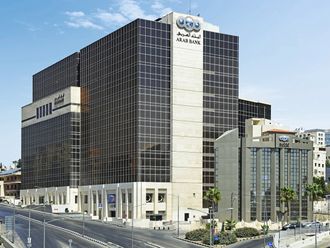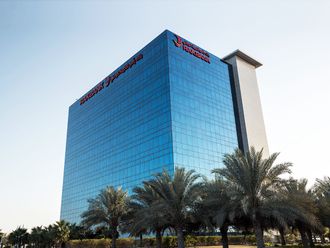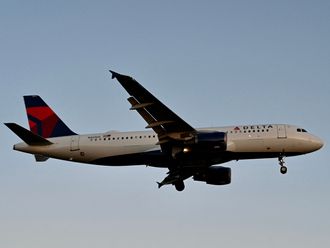New York: ABN Amro Group NV, the nationalised Dutch lender preparing for a share sale this year, posted the highest level of profitability in 16 quarters.
Underlying net profit, which strips out one-time items, rose to €543 million (Dh2.2 billion, $611 million) in the first quarter from 311 million euros a year earlier, the Amsterdam-based company said Wednesday.
ABN Amro, the third-largest lender in the Netherlands, is seeking to show it’s an attractive investment as the government weighs when to go ahead with an initial public offering. Dutch Finance Minister Jeroen Dijsselbloem said last month he plans to put ABN’s IPO back on his government’s agenda “soon,” and that the share sale will probably happen in tranches. Executive salary increases at the state-owned lender in March caused public outrage, leading the government to delay the sale.
“The first quarter was also marked by the publicity around the compensation for abolishing the variable pay for the managing board,” Chief Executive Officer Gerrit Zalm said in a statement. “We sincerely regret the increase in fixed salary and the impact it has had on ABN Amro, our clients and employees, and other stakeholders. Hence, we cancelled the increase.”
Bank Targets
Return on equity, a measure of profitability, increased to 14.1 per cent for its main activities in the first quarter, up from 10.9 per cent at the end of last year. That compares with the bank’s 2017 target of 9 per cent to 12 per cent.
Lawmakers had queried whether the company is fit for sale after an internal inquiry in Dubai showed staff failed to comply with the company’s guidelines.
The Dutch central bank and Dubai Financial Services Authority are still investigating alleged violations at ABN’s branch in the emirate, Chief Financial Officer Kees van Dijkhuizen said on the conference call.
The bank said in an analyst presentation it’s “well positioned” on its internal total loss-absorbing capacity, or TLAC, assuming 8 per cent eligibility. Regulators are designing rules that would see banks using a greater portion of loss-absorbing securities relative to their assets to shield taxpayers from future bailouts.
Royal Bank of Scotland Group Plc, Spain’s Banco Santander SA and Fortis Bank SA/NV acquired ABN Amro in 2007 for about €72 billion in the world’s biggest banking takeover.
With the advent of the financial crisis, the deal turned sour and in October 2008, the Netherlands bought Fortis’s Dutch banking and insurance units and its stake in ABN Amro Holding NV for €16.8 billion to shore up the financial system. Subsequent aid almost doubled the costs of the bailout to about €30 billion.












